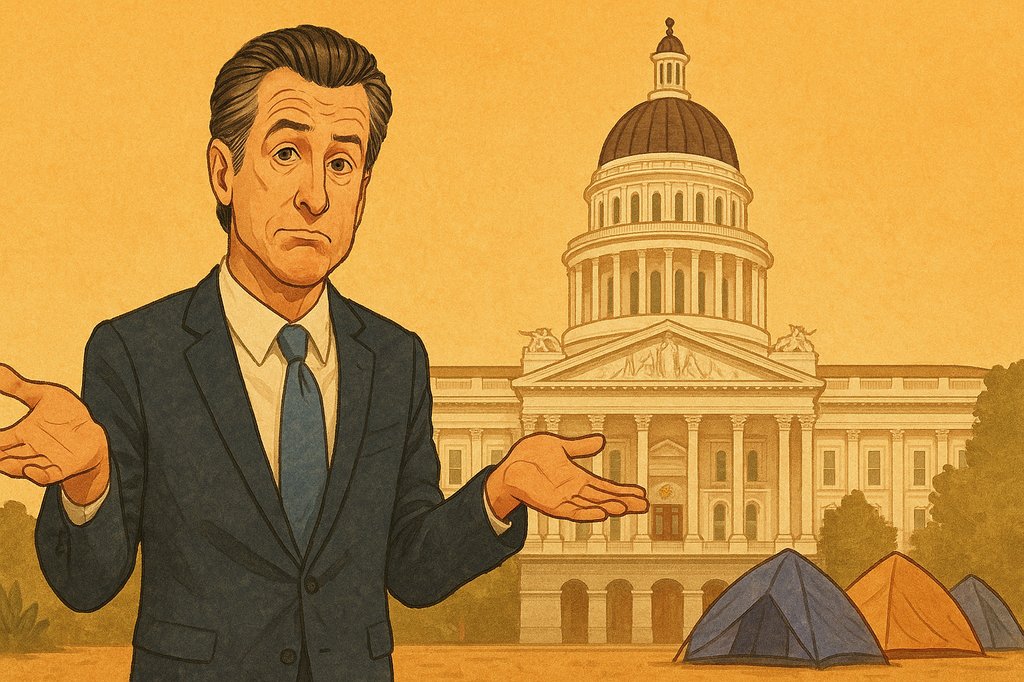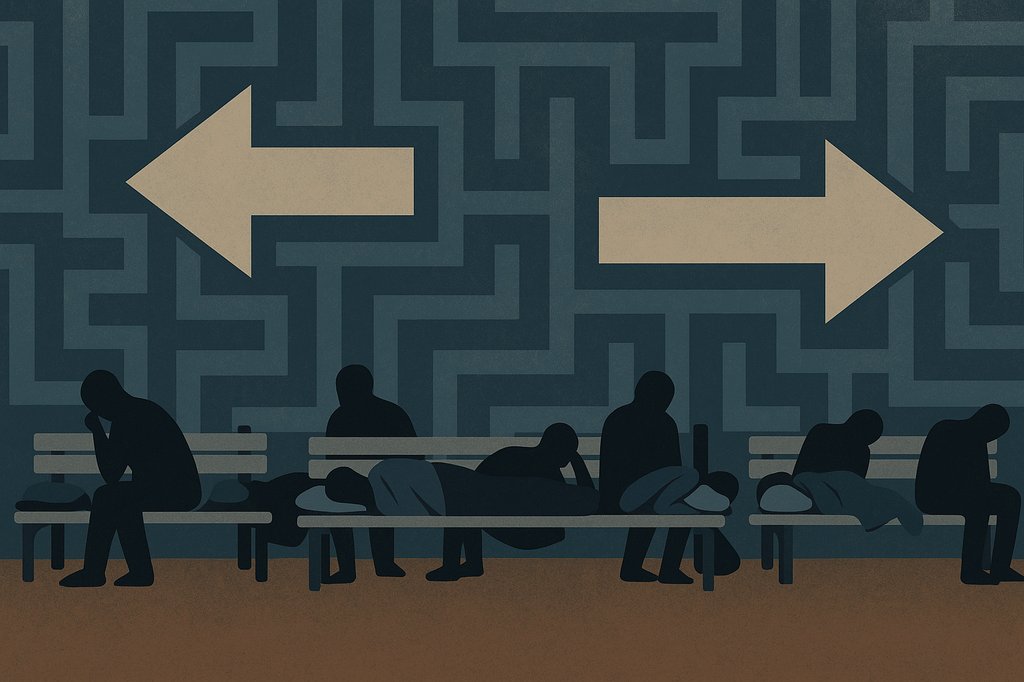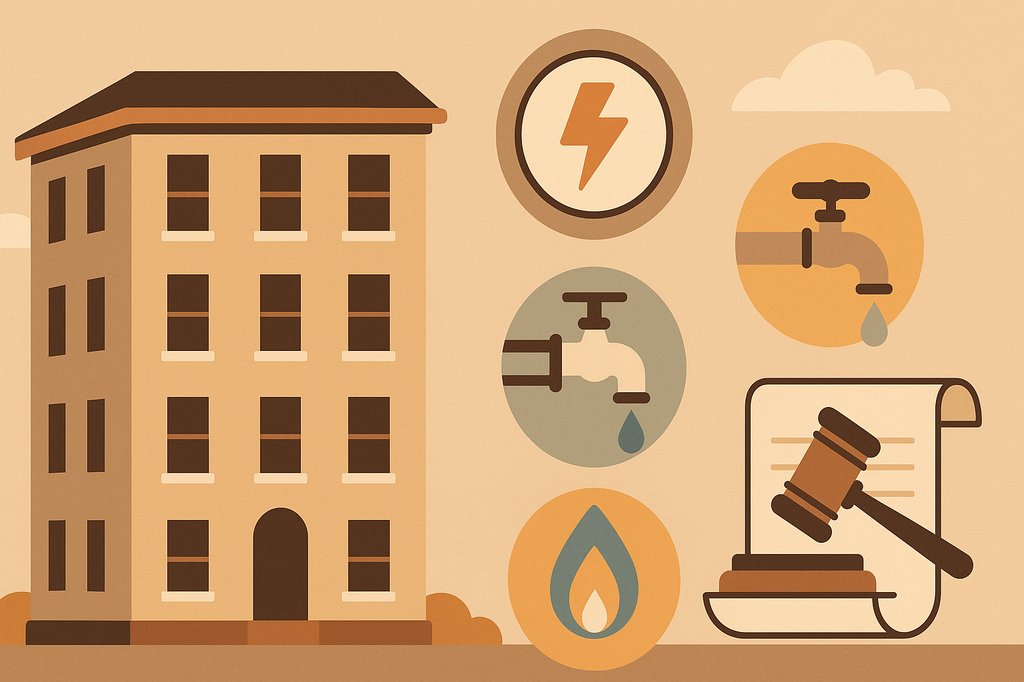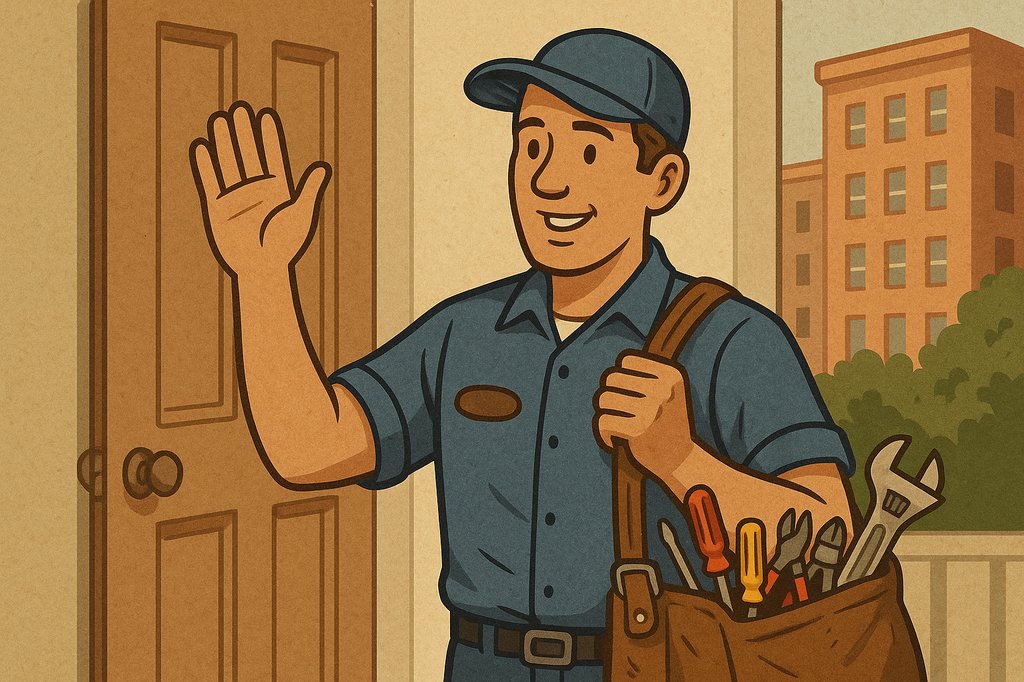The Artist Formerly Known As the Golden State of California
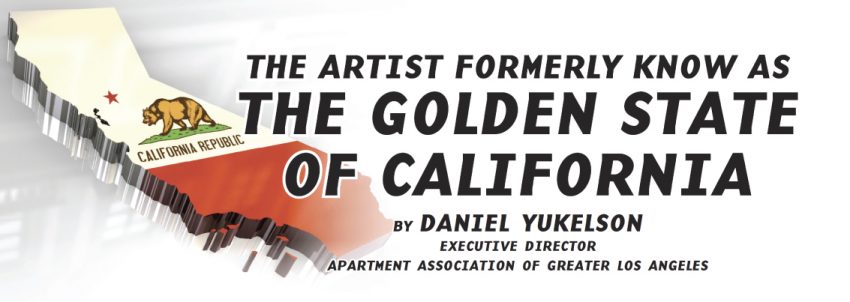
My family moved to California sometime just after World War II. Mom’s family moved to the Westside of Los Angeles around 1948 or 1949 from Rochester, New York when she was in her early 20’s. My grandmother, an immigrant from Eastern Europe, was a widower who had lost her husband to cancer and, at the time, was left with three children under the age of 5, including my mom who was only 3 years old and one brother that not much later died as an infant. Following my grandfather’s and my mom’s sibling’s untimely deaths, my grandmother and her older sister, my great aunt, moved in together to care for my mom and her brother who had been inflicted with polio and suffered from its effects his entire life. Together, these two strong women worked long and hard at often back-breaking, unskilled jobs while at the same time saving and sacrificing as much as humanly possible to put a roof over my mom’s and her handicapped brother’s heads.
Having saved and sacrificed for years, following their arrival in California, my grandmother, great aunt and my mom’s cousins could afford to purchase a 4-unit apartment building in the Pico-Robertson area of Los Angeles where for years thereafter the family lived. The building and the income it generated helped to sustain mom’s family and, in my grandmother’s later years, helped fund her care and the care of her sister, and at the same time, helped pay for the care of mom’s handicapped brother. During the mid-1970’s mom inherited the property. Not only did the income generated from the property rescue my parents in a time of crisis after my father lost his job, but it also helped to pay for my father’s care well into his 80’s until his passing. That same rental property also provided a home for my wife and me, and it is where we lived when our first child was born. Four generations of my family had lived in that apartment building, which I eventually acquired in 2012 by purchasing my brother’s and sister’s inherited shares. I eventually sold the property in 2019.
California’s Once Golden Age
When mom’s family came to California, they came to a place that truly was “The Golden State.” California with its bright sun and warm climate, growing population, building boom and burgeoning economy, was truly full of opportunity and promise. These were California’s “golden years.” California was a far cry from where mom and her family had come from – a cold, dark and economically challenged Upstate New York. At that time, Los Angeles was thriving with its successful entertainment and hospitality industries, and the influx of veterans that had returned from overseas and migration of people from other states. California and the Southland were truly the land of opportunity with plentiful jobs and affordable housing abound. Land was cheap, homes were cheap, and the building boom starting in the late 1940’s that continued until the mid-1970’s easily kept up with growing demand for housing.
Sadly, that’s not our California anymore. Our California of today has become the land of over-taxation, over regulation, and those of us living here are very much lacking optimism. Today, many Californians are looking for the “exit ramp” and leaving for less regulated and less taxed states like Texas, Florida and Nevada. A recent study conducted by the California Institute of Government Studies determined that more than half of Californian’s surveyed have considered leaving the state. The number one cited reason for wanting to leave was housing affordability (particularly of importance to young people) and the high cost of taxes was a close second.
The same poll by the California Institute of Governmental Studies also indicated that Californian’s are 50-50 about whether California is a “best place to live” (about 50% of respondents) or just “OK to lousy” place to live (about 50% or respondents). Even more interesting, about 67% of registered Democrats felt that California is “best place to live” while 77% of registered Republicans surveyed felt that California was just an “OK to lousy” place to live. Apparently, Democrats are in favor of regulation and high taxes. No wonder 75% of our State’s legislature is now dominated by Democrats.
As our Golden State has been busy losing its luster, hordes of Californians have been leaving our once great state. Today, the trend here is a net “out-migration” of people. During 2018, there was a net out-migration of about 156,000 California’s that left our Golden State for other states in the U.S., while approximately 118,000 new international immigrants came to live in California resulting in a “net population loss” of just 38,000 people.
Far Too Much Regulation – They’re Sucking the Wind Out of Us!
So, why are people deciding to leave the wonderful climate we have here in California? Well, one major reason is probably too much regulation. In fact, California proudly stands-out as the most regulated state in the U.S. The Cato Institute, a non-profit a public policy research organization based in Washington, D.C., analyzed the laws of each of the 50 states and measured the number of legal restrictions within their statutes. Sadly, California can claim number one – it ranked at the very top with more than 395,000 individual restrictions. California even outranked more populous New York which has about 90,000 fewer individual restrictions than California! Year after year, our politicians in Sacramento continue burying us in new, restrictive regulations, so no wonder why 50% of Californians are thinking about leaving our state. Soon, we will no longer be able to use plastic bags or plastic straws – oh yah, that’s happened already along with a rising ocean that will soon wipe out our coastal cities!
On top of so much over-regulation, we’ve got to pay our taxes! There we win again (…for fun, start humming that famous Queen song that goes “We are the Champions…”). We Californians have the highest tax rate of all 50 states at 13.3%, and if the so-called “split roll” ballot initiative, the proposal to raise property taxes on commercial properties, does not pass next November, we will likely see that 13.3% bracket rise for higher earners. And that will likely open the floodgates, and we will then see our state’s millionaires exiting in a mass migration to other states like we have never seen before. That would be a very sad outcome for California. Who will then be left to pay all of the taxes?
There’s a concept many of us once studied in college economics, and that concept is called the “Law of Diminishing Returns.” As you tax us Californians more and more, there are fewer Californians that stick around to be taxed, and as a result, higher taxes ultimately yield lower revenues. We see this all the time – raise the sales tax rate in Santa Monica, and sales move over to the nearby jurisdiction that has a lower sales tax rate. Impose a new gross receipts tax on businesses, and the businesses move to another jurisdiction. Legalize and tax marijuana, and the black market in cannabis products begins to flourish.
In combination with the highest Federal tax bracket, we in California are taxed more than 50%, and that’s just income taxes. What about property taxes, sales taxes, payroll taxes and a long list of fees and other assessments we as Californians must pay? At the same time, we can take credit as being held under the #1 tax burden here in America, we should be appalled with our 42nd ranking (That’s 8th from the bottom folks…) in fiscal solvency. This is very scary stuff here. In the face of our worst and worsening tax burdens, our solvency stinks, and things are now going to get far, far worse. The reason being is that we have now passed two new fiscal disaster pieces of legislation, Assembly Bill 1482, the price controls on rents and tenant protection law, and the new law reclassifying independent contractors as employees.
Now We’re Stuck With Statewide Rent Control and Tenant Protections
Our state legislature and Governor Newsom like to refer to Assembly Bill 1482 as an “anti-price gouging” measure, which it is not. It is pure and simple price controls and regulation in the continuing war on rental property owners. It seems that renters in California along with our elected officials have no grasp on the economic impacts of price controls. Perhaps they should consult with the more than 90% of economists surveyed that have come out against rent control. As Swedish economist and Socialist, Assar Lindbeck, once said: “In many cases rent control appears to be the most efficient technique presently known to destroy a city—except for bombing.” The time has come to paint the color of our state brown rather than golden.
So, why would so many economists come out against rent control? Well, just look at the impacts of Federally mandated gasoline price controls during the 1970’s. They resulted in severe shortages at the pump – for those that can remember, we could only buy gasoline a few days each week, and we experienced long lines at the “pump.” The same has become true when it comes to rental housing. Rent control is just another form of price controls, and the result of 40-plus years of rent control and tenant protection regulation has been severe housing shortages, particularly shortages of affordable rental housing, skyrocketing rents, gentrification and rapidly growing homelessness populations. Price controls never work and won’t solve the severe housing shortages we find ourselves living under – they do not produce one unit of new housing.
Now we Californian’s are “stuck” with Assembly Bill 1482. As a result, here’s a short synopsis of what we can expect for high-demand, limited supply areas in California:
- Owners will scrutinize tenant applicants and be far more selective. Gone are the days of taking a chance on the lovely couple that seems to have potential – why take a chance of getting into a situation that might only result in a “just-cause” court battle?
- Owners will raise rents consistently every year and up to the maximum allowable amount. Gone are the days of forgone rent increases knowing that someday you can “catch-up.”
- Tenants will be reluctant to give-up their rent-controlled units, forgoing opportunities to buy property of their own, forgoing job opportunities, commuting long distances to work, or staying in place long after the children have gone and the 3-bedroom unit no longer suits their needs. As a result, there will be far fewer rental units available for the next individual or family that needs one.
- Gentrification will rapidly continue – study after study has proven that higher income earning renters are the ones that mostly benefit from rent regulation. Rent control is all about average income property owners subsidizing the lifestyles of their wealthier renters, and that’s completely unfair.
- Available rental units will be reduced as owners begin looking for the “exit ramp,” by converting their properties into condominiums or other non-rental uses.
- Owners will defer maintenance to make-up for lost revenues and to conserve their cash flow. A likely outcome in many neighborhoods could be blight.
- Rent regulations and price controls will surely end up discouraging investment in housing. As a result, any attempt to “make-up” the housing deficit to meet ongoing and growing demand for rental housing will be a “flat-out” failure.
These expectations are not based on theory or guesswork – sadly, we have seen these scenarios playout over and over again during the past four decades or so that we Californians have suffered under rent regulations and price controls. Our elected officials just don’t get it. Like the definition of “insanity,” you just can’t keep trying the same thing over and over and expect a different result!
Bye, Bye to Uber and the “Gig” Economy?
The passage this year of Assembly Bill 5 will eventually kill what is known as the “gig” economy by eliminating most, if not all, independent contractors. Companies such as Uber and Lyft for ride sharing, Rover and Wag for dog walking and babysitting, and Grub Hub for food delivery will ultimately cost us Californians far more for these services. Of course, there’s always a chance these services won’t continue servicing us here in California and may eventually become a thing of the past. That’s sad.
Some of these “gig” economy companies, such as Uber, are very new and do not yet make money. So, if they cannot make it on their current business model, the additional expense of adding thousands of employees will certainly not help their ability to survive. How many of the thousands of Uber and Lyft drivers will eventually be out of work because Sacramento has made a land-grab for more payroll taxes. In the apparent attempt at “fairness” to treat “gig” economy independent contractors as employees giving them all the benefits of employment (e.g., healthcare, retirement, etc.), this whole scenario really seems a far cry from fair. Who in their right mind thinks we Californians are better off without Uber or Lyft? Watch out, this might only be the beginning.
Our Once Great “Gold Rush” is Quickly Becoming a “Gold Exodus.”
With nearly 400,000 restrictions written into our laws and our ever-increasing tax burden, the fuel that has driven our economic engine may soon be flaming out. The California of today has too few available affordable housing units to meet demand and has no prospect of ever meeting that demand given the cost and regulatory burdens of doing business here. The California of today is losing thousands of its citizens, many of whom are the State’s millionaires, to other more financially attractive and business friendly states, and in their place, California is gaining thousands of new immigrants many of whom are in need of costly services while they gain their footing in a new country. The California of today is a large and growing bastion of homeless populations with no real, workable solutions coming out of Sacramento or from our local elected politicians – they’ve merely chosen to pick on the one group that is actually providing housing, we rental property owners, as the blame for all the homelessness and mental illness we see on our streets today.
It’s all very sad. This is not the California I grew up with and certainly not the California my family came to decades ago. While the weather is still great virtually all year round, a cold strong wind has begun blowing down on us from Sacramento and very soon the skies will turn cloudy and gray. The dark shadow of California political ineptitude will soon be thrust upon all of us. Stay tuned or take the next exit!
Daniel Yukelson is currently the Executive Director of The Apartment Association of Greater Los Angeles (AAGLA). As Certified Public Accountant, Yukelson began his career at Ernst & Young, the global accounting firm, and had served in senior financial roles principally as Chief Financial Officer for various public, private and start-up companies. Prior to joining AAGLA, Yukelson served for 12 years as Chief Financial Officer for both Premiere Radio Networks, now a subsidiary of I-Heart Media, and 3 years for Oasis West Realty, the owner of the Beverly Hilton and Waldorf Astoria Beverly Hills where he was involved with the development and construction of the Waldorf.

